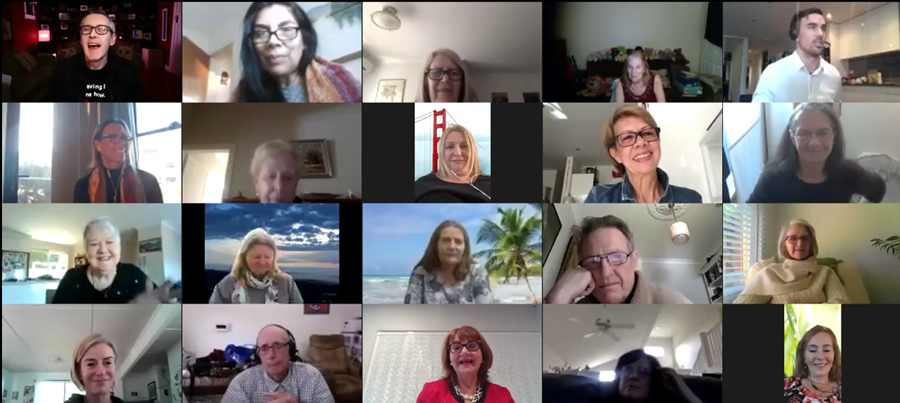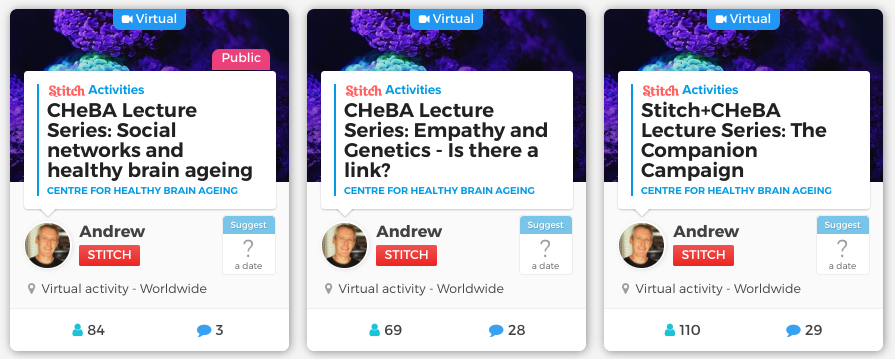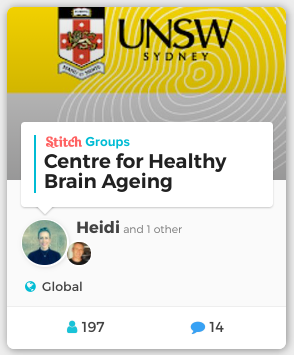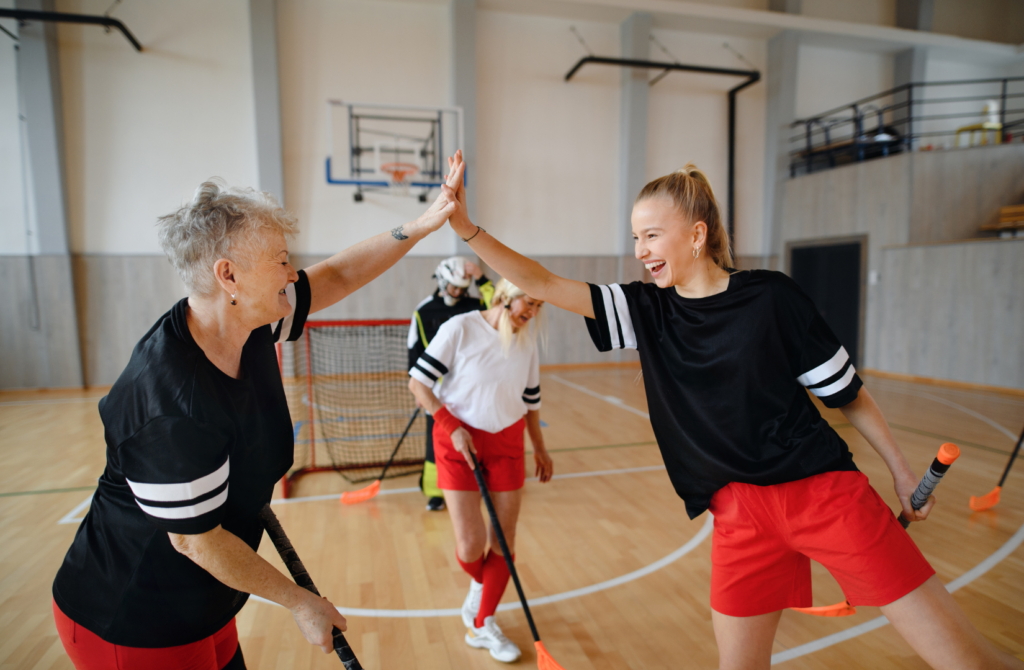There are some pretty frightening statistics about dementia out there.
Like this one, for example: There are currently an estimated 50 million people with dementia, and that’s estimated to increase to 131.5 million by 2050.
Or how about this one: Dementia is the leading cause of death in the UK and the second leading cause of death in Australia.
Like I said, frightening. However it’s not all doom and gloom.
What the media doesn’t often share is the incredible work and research that is done, and progress that is made by research institutions all around the world, to help reduce the likelihood of dementia.
At Stitch, we’ve partnered with one such research institution to help our community reach 100 with happy and healthy brains!
Stitch and the Centre for Healthy Brain Ageing
The Centre for Healthy Brain Ageing (also known as CHeBA) is a research centre at the University of New South Wales predominantly focused on research into Alzheimer’s disease and other dementias.
We’re excited to announce that Stitch has partnered with CHeBA to present an educational lecture series to Stitch members!
The researchers presenting the lectures share the latest research into cognitive health as we age, and provide helpful strategies to help us achieve positive ageing. Because no member of Stitch should fall victim to dementia if we can help it.

The lecture series
So far researchers at CHeBA have presented three lectures to Stitch members, with more lectures scheduled for the future.
All ‘highlights’ videos from each lecture will be shared below as they become available.
Only Stitch members have access to full lectures. If you’re not a member, join today to access these educational presentations and watch them at your own convenience.

Lecture 1
In the first lecture, Research Assistant Rhiagh Cleary presented The Companion Campaign, exploring the importance of staying socially connected, particularly in times of physical isolation.
She also shared handy everyday tips on how we can safeguard against cognitive decline through social interaction.
Watch the highlights of this lecture below. If you’re a Stitch member you can watch the full lecture here.
Lecture 2
In the second lecture, Empathy & Genetics, Russell Chander who is currently researching his Psychiatry PhD at CHeBA, spoke about the link between empathy and genetics.
Empathy is an important skill that is needed for humans to navigate social environments and interact with others. Yet, for something so crucial and commonplace, there seems to be an enormous amount of variability in how much empathy different people possess.
Genetics has been proposed as a cause for this variability, but just how influential is it? Russell’s lecture described what empathy is, why it’s so important to society, and he shared some of the interesting genetic research on empathy.
Watch the highlights of this lecture below. If you’re a Stitch member you can watch the full lecture here.
Lecture 3
In the third lecture, Social Networks and Healthy Brain Ageing, Dr Anne-Nicole Casey who is a Postdoctoral Research Fellow at CHeBA, revealed that the number and type of relationships we maintain (family, friendship, community) and the quality of those relationships are particularly important to brain health.
Watch the highlights of this lecture below. If you’re a Stitch member you can watch the full lecture here.
Lecture 4
In the fourth lecture Dr Katya Numbers, a Postdoctoral Fellow at CHeBA, challenged some of the negative stereotypes about ageing.
The average lifespan in Western societies is steadily increasing thanks to advances in health and medicine. Yet, despite this ‘longevity revolution’, Western societies continue to hold negative and harmful stereotypes of ageing. This talk went beyond common myths and misconceptions about ageing and focused instead on ways that our moods, relationships and overall sense of well-being can actually improve with age.
The highlights video of this lecture will be shared here shortly. If you’re a Stitch member you can watch the full lecture here.
Interested in future lectures?
Full lectures are only available to Stitch members. If you’re not a member, you can sign up for free here.
For exclusive invitations to upcoming lectures and for full access to past presentations, join the Centre for Healthy Brain Ageing group on Stitch.





